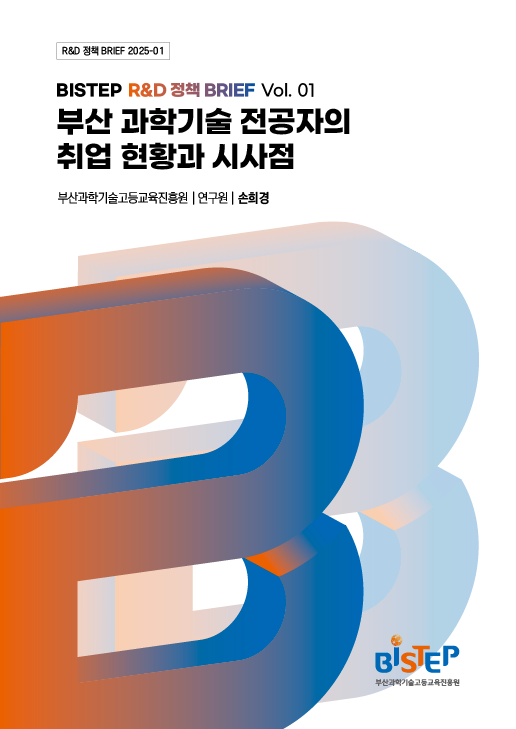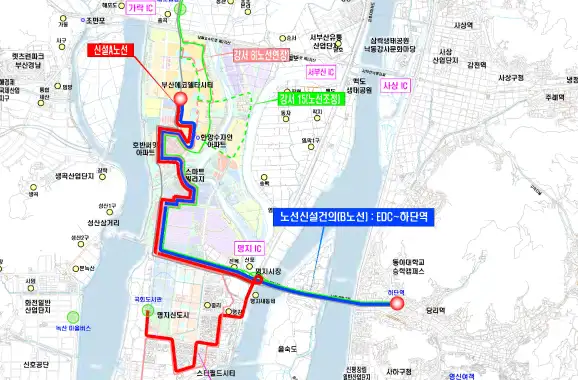Busan’s Science and Tech Graduates Struggle in Job Market Amid Brain Drain Concerns
Busan’s science and technology graduates face growing employment challenges, with many struggling to find stable, high-paying jobs. A new BISTEP report highlights alarming trends, including high non-regular employment rates, wage disparities, and a worsening brain drain.

BUSAN, South Korea - Busan's science and technology graduates are facing increasing difficulties in securing employment, with many unable to find jobs that align with their expertise. This trend has contributed to a rising brain drain, as skilled workers leave for better opportunities in other regions, particularly in Seoul. A recent BISTEP report highlights concerning employment trends, revealing that Busan lags behind national averages in job placement for science and technology graduates, while also suffering from high rates of non-regular employment and wage disparities.
The report, published by the Busan Institute of Science and Technology Education and Promotion (BISTEP), analyzes employment outcomes for science and technology graduates in the region. The findings indicate that natural sciences, information and communication technology (ICT), and engineering graduates struggle the most in securing relevant jobs. In contrast, the healthcare sector remains one of the few fields with stable employment opportunities.
Despite being one of South Korea’s leading producers of science and technology graduates, Busan has been unable to retain its skilled workforce. Over the years, more than 21,000 science and tech graduates have left the city, citing limited job opportunities and lower wages compared to those offered in other regions.
The employment outlook for young professionals in Busan is particularly challenging. Many recent graduates struggle to find positions that match their fields of study, forcing them to either accept unrelated jobs or relocate in search of better opportunities. The report also highlights that Busan’s science and tech workforce is aging, as a higher proportion of workers are in their 40s and 50s, while younger talent continues to leave.
Employment instability is another pressing concern. The percentage of non-regular workers in Busan’s science and tech industries is significantly higher than the national average. The report specifically notes that 28.8% of ICT professionals in Busan are employed on a non-regular basis, compared to the national average of 18.1%.
Another major challenge for Busan’s science and tech professionals is wage disparity. On average, workers in Busan earn 9% less than their counterparts in other regions. The wage gap becomes more pronounced at higher education levels, as those with master’s and doctoral degrees face even larger salary discrepancies.
The report also points to a misalignment between education and industry demand. While Busan continues to produce a large number of graduates in engineering and ICT fields, the local job market fails to provide sufficient employment opportunities in these sectors. As a result, many graduates either take up unrelated jobs or relocate to cities with better career prospects. Meanwhile, the healthcare sector remains a rare bright spot, with relatively stable employment opportunities.
Experts warn that without urgent policy interventions, Busan will continue to lose high-skilled professionals to other regions, ultimately weakening its ability to compete in high-tech and innovation-driven industries.
According to BISTEP researcher Son Hee-kyung, Busan must reduce the mismatch between education and job availability by expanding career opportunities in emerging industries such as artificial intelligence (AI) and digital transformation. He emphasized that without proactive measures, the city's talent drain will accelerate, making it increasingly difficult to attract and retain skilled professionals.
Busan's challenges in talent retention extend beyond the science and tech sector, reflecting a broader economic issue. With the city experiencing an accelerating brain drain and an aging workforce, its long-term economic competitiveness is at risk. Without significant changes, Busan may struggle to establish itself as a leader in high-tech industries.
As the Seoul metropolitan area continues to dominate job creation in science and technology, Busan must act quickly to create an environment where local graduates can build long-term careers. Failure to do so could further weaken Busan’s standing in South Korea’s national innovation strategy.
With discussions on policy reforms underway, the key question remains: Can Busan transform itself into a thriving science and technology hub before it loses another generation of skilled workers? The coming years will be crucial in determining whether Busan can retain its talent and build a sustainable, innovation-driven economy.
The following table highlights some of the most critical statistics from the report, illustrating the employment challenges faced by Busan’s science and technology graduates.
| Category | Busan | National Average |
|---|---|---|
| Science & Tech Graduate Employment Rate | Lower than national avg. | - |
| ICT Non-Regular Employment Rate | 28.8% | 18.1% |
| Wage Gap for Science & Tech Graduates | 9% lower than national avg. | - |
| Wage Gap for Doctoral Graduates | Busan: 580M KRW/yr | Nationwide: 630M KRW/yr |
| Number of Science & Tech Graduates Who Left Busan | Over 21,000 | - |
| Share of Workforce in 40s and 50s | Higher than national avg. | - |



Comments ()